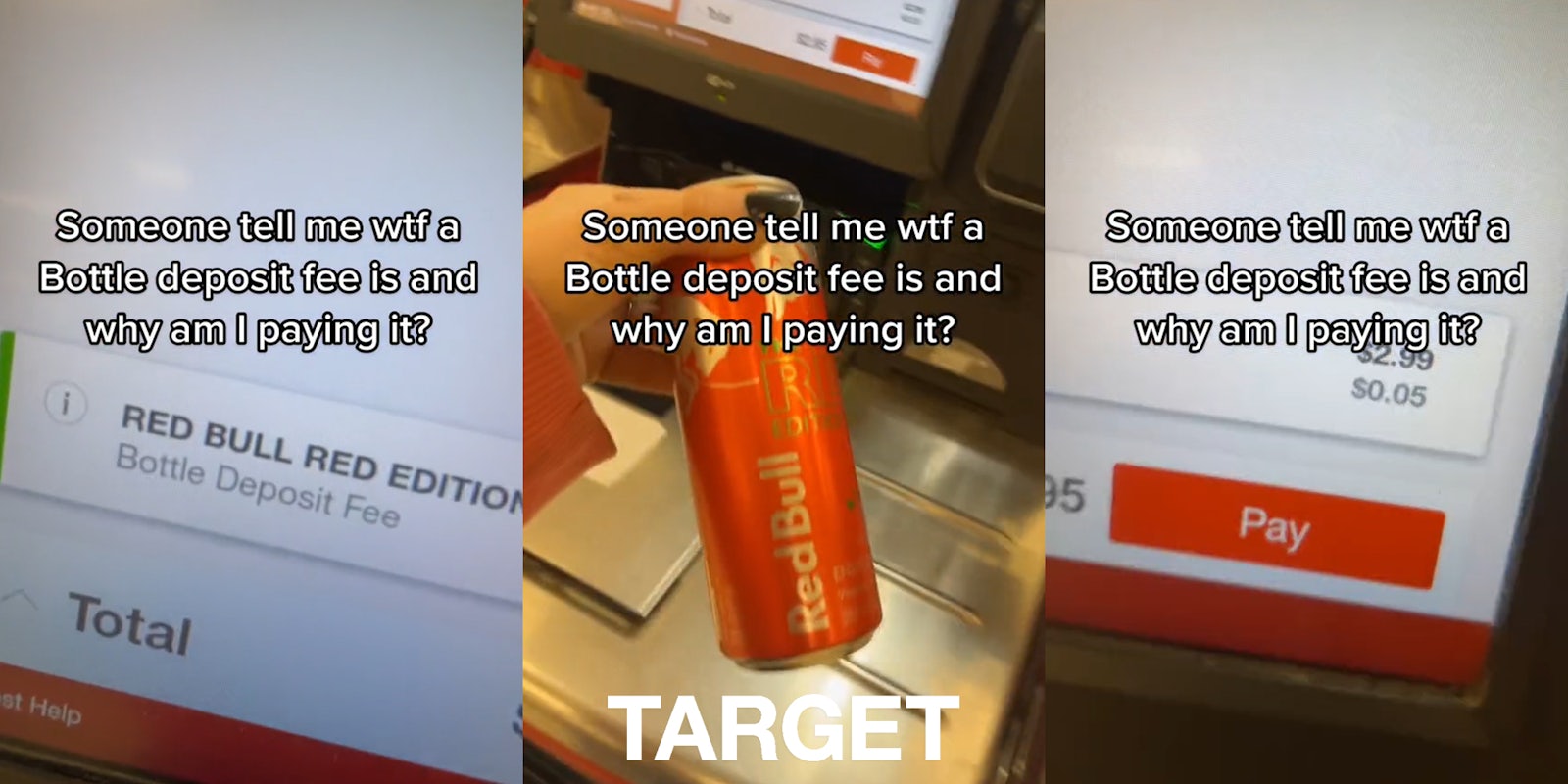Sometimes, examining a receipt can bring surprises. For example, a Burger King customer recently went viral after claiming that the store gave him a coupon — only for him to look at his receipt and discover the store had actually charged him a dollar for it.
However, sometimes these charges are for much less money — and are significantly easier to explain. Such is the case in a recent viral video from TikTok user Fjeff (@findingxfarrah), who encountered a surprise charge on a recent trip to Target.
“Someone tell me wtf a Bottle deposit fee is and why i am paying it?” Fjeff asks in the text overlaying the video, which currently has over 365,000 views. The video shows Fjeff being charged an additional bottle deposit fee of $0.05 on top of a $2.99 can of Red Bull.
In the comments section, users responded to Fjeff’s request with a genuine explanation as to what a bottle deposit fee does and its intended motivations.
“You’re paying the 5 cents now; but, when you return the can, you get your nickel back,” a user wrote. “In Oregon it’s ten cents.”
“It’s a fee for the can/bottle,” another added. “in MA is supposedly to ward away from people not recycling bc you can bring those in to target/walmart and other redemption places to get the fee back in a refund.”
“You can return alot of cans and bottles and get that 5 cents back. 6 cents some places,” a third echoed.
These commenters are mostly correct. Numerous states and cities have ‘bottle bills’ — laws that encourage recycling by requiring customers to put a deposit down on any bottle purchased germane to the law.
“Beverage container deposit laws, or bottle bills, are designed to reduce litter and capture bottles, cans, and other containers for recycling. Ten states and Guam have a deposit-refund system for beverage containers,” writes the National Conference of State Legislatures. “Deposit amounts vary from two cents to 15 cents, depending on the type of beverage and volume of the container.”
While most states that have implemented these programs have respectable return rates, states with higher bottle deposits see much greater utilization of the program than those with lower deposits.
“Michigan and Oregon have the highest return rates of U.S. bottle bill states, with more than 85% of eligible beverage containers returned by consumers for recycling. This is largely attributed to the higher 10-cent deposit, which offers a compelling incentive to return used beverage containers,” explains the manufacturer of recycling products TOMRA. “On the other end of the spectrum, Connecticut achieves a 44% redemption rate. Experts attribute this to the low five-cent deposit value relative to local consumer’s purchasing power, and an underfunded redemption system.”
In response to low utilization and other issues, Connecticut recently voted to increase their bottle deposit to $0.10 at the start of 2024, per the state’s Department of Energy & Environmental Protection.
After this flurry of information, Fjeff thanked users for their help.
“Thanks for answering. I think I get it now,” she wrote, adding a laughing emoji.
We’ve reached out to Fjeff via TikTok comment.
Update 1:14pm CT, Jan. 14, 2023: In a TikTok direct message exchange with the Daily Dot, Fjeff says she had not been aware of the program prior to posting her video.
“Now that I know a little more, if it helps keep recycling a thing, I’m all for it,” she detailed.
Still, she added, “People are pretty lazy, and I think they know no one’s going to come back and get that 5 or 10 cents…[I] just think that in the long run…it’s a clever sneaky idea to get us to pay for recycling haha.”
That said, she noted that the program could be advertised better so more people take advantage of it.
“[I’m] surprised I never noticed it before — apparently it’s been a thing!” she stated. “They need signs. They don’t even tell you where to go to get the money back.”



